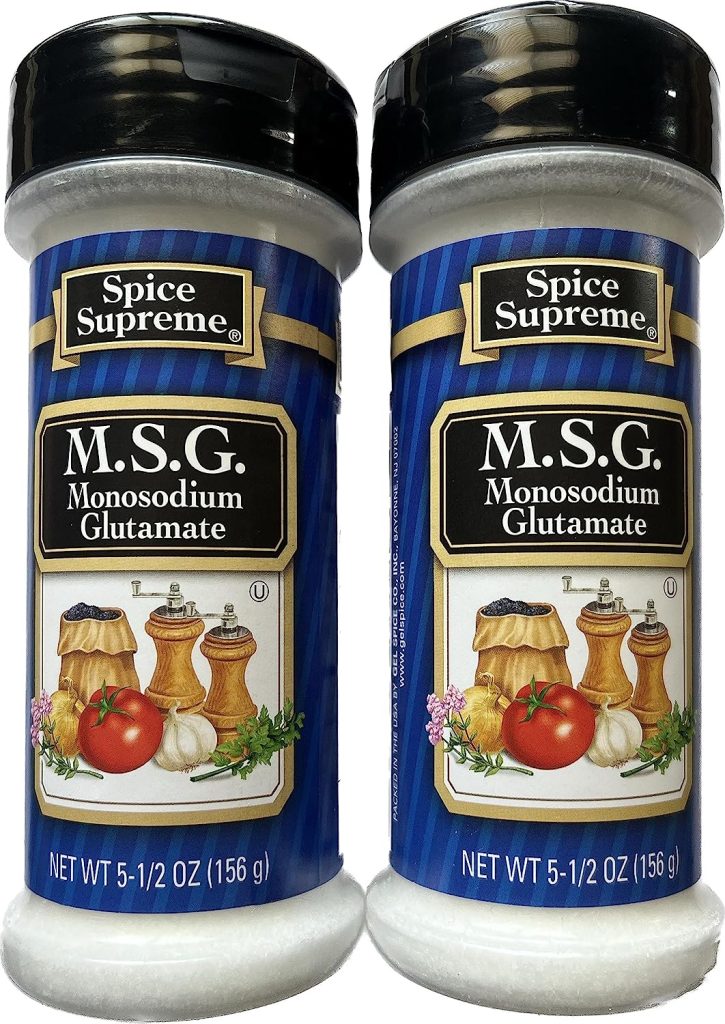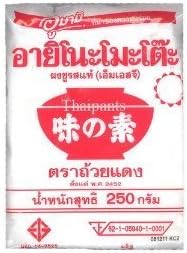In the realm of culinary controversies, few ingredients have sparked as much debate as monosodium glutamate, better known as MSG. This flavor-enhancing substance has been the subject of various claims and concerns, but what exactly is MSG, and is it as harmful as some people believe?
Join us as we delve into the MSG phenomenon, its taste, and the scientific perspective behind its reputation.
What is MSG?
MSG, short for monosodium glutamate, is a flavor enhancer commonly used in many Asian cuisines and processed foods. It was first isolated in 1908 by Japanese scientist Kikunae Ikeda, who discovered that glutamate, an amino acid, was responsible for the distinct umami taste found in foods like seaweed and soy sauce.

Spice Supreme brand M.S.G. Monosodium Glutamate, Plastic Shaker, 156 grams (Pack of 2)
Certified OU Kosher, Used in Commercial and Home Kitchens, Sealed for freshness
Is MSG Bad for You?
Over the years, MSG has gained a dubious reputation, with claims ranging from headaches and allergies to more severe health issues. However, the majority of scientific research conducted so far suggests that MSG is safe for consumption. In fact, MSG is classified as a food ingredient that is “generally recognized as safe” (GRAS) by the U.S. Food and Drug Administration (FDA) and is approved for use in many countries worldwide.
“FDA considers the addition of MSG to foods to be “generally recognized as safe” (GRAS). Although many people identify themselves as sensitive to MSG, in studies with such individuals given MSG or a placebo, scientists have not been able to consistently trigger reactions.”
Food and drug administration (FDA) 01/04/2018
The infamous “Chinese Restaurant Syndrome,” characterized by symptoms like headaches and flushing, was initially associated with MSG consumption. However, subsequent studies failed to establish a definitive link between MSG and these symptoms. The symptoms reported were likely due to other factors, such as high sodium content, individual sensitivities, or even psychological expectations.
MSG and Glutamate: The Flavorful Connection:
Glutamate, a naturally occurring amino acid, is present in many foods, including cheese, tomatoes, and mushrooms. It is responsible for the savory umami taste that adds depth and richness to dishes. When MSG is added to food, it breaks down into glutamate, stimulating taste receptors on the tongue and enhancing the overall flavor of a dish.
What Does MSG Taste Like?
MSG itself is virtually tasteless. However, when added to food, it imparts a unique savoriness known as umami, which can best be described as a delicious combination of meaty, savory, and mouthwatering flavors. If you’ve ever had a packet of instant ramen for example, then you know that unique “meaty” flavor that comes from the flavoring packets, that’s mostly MSG giving an explosion of umami in your mouth. Umami has been recognized as the fifth taste sensation alongside sweet, sour, bitter, and salty, providing a more rounded and satisfying experience to our taste buds.
Embracing a Balanced Approach:
As with any food ingredient, moderation is key when it comes to MSG. While it is safe for the majority of individuals, some people may experience mild symptoms due to personal sensitivities. If you suspect sensitivity to MSG, it is advisable to read labels carefully, as it can be found in processed foods, canned soups, snack foods, and even some seasonings.
For those seeking to avoid MSG altogether, opting for fresh, whole foods and cooking from scratch allows for complete control over ingredients. However, it’s important to note that many restaurants and eateries use MSG to enhance flavors, so it may be challenging to avoid it entirely when dining out.
Conclusion:
The MSG debate has been ongoing for decades, but the scientific consensus points to its safety when consumed in moderate amounts. It is essential to separate facts from myths and make informed choices based on reliable research. Understanding the role of MSG in enhancing flavors and appreciating the unique umami taste can lead to a more enjoyable and balanced culinary experience.
Remember, the key to a healthy lifestyle lies in maintaining a well-rounded and varied diet, with mindfulness towards individual sensitivities and preferences. So, embrace the flavors, experiment in the kitchen, and savor the world of cuisine with confidence, knowing that MSG is more friend than foe on your gastronomic journey.

